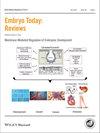下载PDF
{"title":"Sociocultural aspects of disorders of sex development","authors":"Annastasia Ediati, Nani Maharani, Agustini Utari","doi":"10.1002/bdrc.21144","DOIUrl":null,"url":null,"abstract":"<p>Disorders of sex development (DSD) is a congenital condition in which the development of chromosomes, gonads, hormones, and reproductive structures are atypical. DSD brings with it a psychological impact on the affected individual and their families. The consensus statement on management of DSD strongly advised an integrated and multidisciplinary approach in providing care to the affected individuals. Studies have been conducted focusing on medical intervention, and more recently, there is increasing attention paid to psychological aspects of DSD. However, studies reporting cultural aspects of DSD are lacking. This review provides an overview on how culture impacts the affected individuals in coping with DSD and making decisions with regard to gender assignment or reassignment, help-seeking behavior for medical treatments, attitudes toward medical treatment, religious beliefs, and values concerning marriage and fertility. The involvement of social scientists is needed to study sociocultural aspects of DSD from more diverse cultures, to help affected individuals and their families in gaining better social acceptance. Birth Defects Research (Part C) 108:380–383, 2016. © 2016 Wiley Periodicals, Inc.</p>","PeriodicalId":55352,"journal":{"name":"Birth Defects Research Part C-Embryo Today-Reviews","volume":"108 4","pages":"380-383"},"PeriodicalIF":0.0000,"publicationDate":"2016-12-29","publicationTypes":"Journal Article","fieldsOfStudy":null,"isOpenAccess":false,"openAccessPdf":"https://sci-hub-pdf.com/10.1002/bdrc.21144","citationCount":"13","resultStr":null,"platform":"Semanticscholar","paperid":null,"PeriodicalName":"Birth Defects Research Part C-Embryo Today-Reviews","FirstCategoryId":"1085","ListUrlMain":"https://onlinelibrary.wiley.com/doi/10.1002/bdrc.21144","RegionNum":0,"RegionCategory":null,"ArticlePicture":[],"TitleCN":null,"AbstractTextCN":null,"PMCID":null,"EPubDate":"","PubModel":"","JCR":"Q","JCRName":"Medicine","Score":null,"Total":0}
引用次数: 13
引用
批量引用
Abstract
Disorders of sex development (DSD) is a congenital condition in which the development of chromosomes, gonads, hormones, and reproductive structures are atypical. DSD brings with it a psychological impact on the affected individual and their families. The consensus statement on management of DSD strongly advised an integrated and multidisciplinary approach in providing care to the affected individuals. Studies have been conducted focusing on medical intervention, and more recently, there is increasing attention paid to psychological aspects of DSD. However, studies reporting cultural aspects of DSD are lacking. This review provides an overview on how culture impacts the affected individuals in coping with DSD and making decisions with regard to gender assignment or reassignment, help-seeking behavior for medical treatments, attitudes toward medical treatment, religious beliefs, and values concerning marriage and fertility. The involvement of social scientists is needed to study sociocultural aspects of DSD from more diverse cultures, to help affected individuals and their families in gaining better social acceptance. Birth Defects Research (Part C) 108:380–383, 2016. © 2016 Wiley Periodicals, Inc.
性发育障碍的社会文化方面
性发育障碍(DSD)是染色体、性腺、激素和生殖结构发育不典型的先天性疾病。残疾会对个人及其家庭造成心理上的影响。关于管理残疾人士的共识声明强烈建议以综合和多学科的方法为受影响的个人提供照顾。研究的重点是医疗干预,最近,人们越来越关注失忆症的心理方面。然而,缺乏关于DSD文化方面的研究。这篇综述综述了文化如何影响受影响个体在应对DSD和做出关于性别分配或再分配的决定、寻求医疗帮助的行为、对医疗的态度、宗教信仰以及关于婚姻和生育的价值观。需要社会科学家的参与,从更多元的文化中研究失足儿童的社会文化方面,以帮助受影响的个人及其家庭获得更好的社会接受。出生缺陷医学杂志(C辑),2016。©2016 Wiley期刊公司
本文章由计算机程序翻译,如有差异,请以英文原文为准。

 求助内容:
求助内容: 应助结果提醒方式:
应助结果提醒方式:


